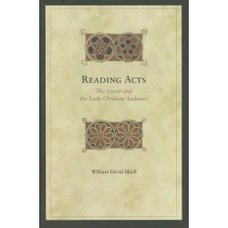Introducing Ezekiel: the Priest turned Street Performer
We'll be studying Ezekiel at First Baptist this January. Here's a preview of the series.
Ezekiel
prophesies during a time of reconstruction for an exiled community who lives at
the end of one era of faith and awaits the beginning of a new day. Settled in a
world they could have never imagined, they are trying to discover how to live
their faith on the heels of disaster. With no clear path to the future, the
community looks to God for direction and finds it in the life, ministry, and
mission of a street-corner performer.
Ezekiel
begins his career as most preachers in ancient Judah did, serving in the
rotation of the sacrificial system. His role quickly changes from priest to
exiled minister to prophetic messenger. God not only calls but then recalls him
to a different ministry plan that he could not have anticipated. He is a
priest-turned-performer showing and eventually telling a message to his
community. He has a vision of a future that only God can bring about, of a city
that only God will build. With that vision in mind, the prophet performs through
gesture and pantomime to awaken his audience’s attention. He speaks in parable
about a future under construction. He calls the people to identify with that
vision and begins to enact its norms and values in the community. They are
citizens in training for a place that will simply be known as “The Lord is
There.” They will demonstrate what that city will look like through their
behavior and their trust in the God who will provide.
The
book of Ezekiel records this transformation in the life of the prophet and the
people he serves. Many of the Bible studies written about Ezekiel describe him
as the “hallucinating prophet,” the person who sees UFOs, or the predictor of events
presented in Revelation. This study, however, approaches Ezekiel from the perspective
of those early audiences who heard the message not as Ezekiel performed it, but
as the text was read to communities no matter where they were exiled. Translated
into the Greek Septuagint (LXX) and eventually included in the early Christian
canon, the book testifies to the ways communities identify with a future God is
building. For people living on the heels of disaster, they learn new ways of
living that demonstrate their trust in, fidelity to, and patience with God who
is in charge.
I'll be posting more thoughts on Ezekiel in the coming days. What do you think about this fascinating book? How have you been influenced by this message?







No comments:
Post a Comment